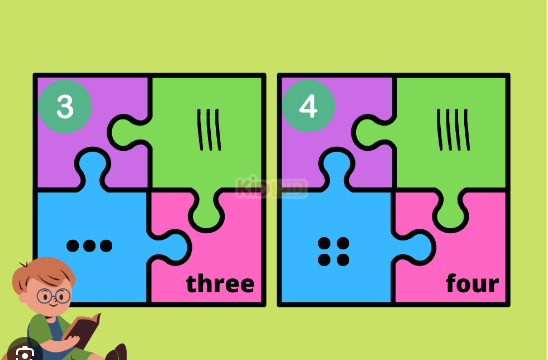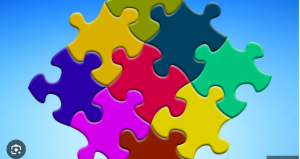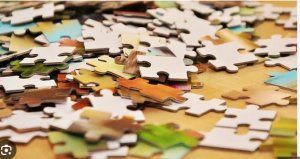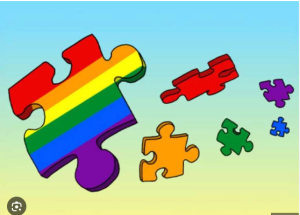I. Introduction
A. Engaging the Mind: An Overview of Puzzles B. Purpose of the Article: Exploring the Profound Impact of Puzzle Solving
II. Cognitive Development Through Puzzles
A. Problem-Solving Skills 1. Analytical Thinking 2. Critical Reasoning B. Enhancing Memory 1. Short-Term Memory Benefits 2. Long-Term Memory Enhancement
III. Mental Agility and Flexibility
A. Improving Concentration 1. Heightened Focus 2. Attention to Detail B. Boosting Adaptability 1. Handling Complexity 2. Building Resilience
IV. Emotional and Psychological Benefits
A. Stress Relief and Relaxation 1. Therapeutic Effects 2. Alleviating Anxiety B. Sense of Achievement 1. Confidence Building 2. Satisfaction from Completion
V. Social and Collaborative Aspects
A. Teamwork and Collaboration 1. Cooperative Puzzle Solving 2. Strengthening Bonds B. Educational Significance 1. Learning Enhancement in Various Age Groups 2. Incorporating Puzzles in Educational Settings
VI. Types of Puzzles and Their Impact
A. Jigsaw Puzzles 1. Spatial Awareness Development 2. Patience and Persistence B. Crossword Puzzles and Sudoku 1. Vocabulary and Language Skills 2. Logical and Mathematical Proficiency
VII. Practical Application of Puzzle Skills
A. Translating Puzzle Proficiency to Real-Life Situations 1. Problem-Solving in Everyday Scenarios 2. Decision-Making and Critical Thinking B. Career Relevance 1. Fields that Benefit from Puzzle-Solving Skills 2. Success Stories
VIII. Conclusion
A. Recapitulation of Puzzle Impact B. Encouraging the Practice of Puzzles for Holistic Development
Title: Unraveling the Benefits: Exploring the Skills Developed by Solving Puzzles
Introduction:
Puzzles, in their myriad forms, have captivated minds across generations. Beyond their entertainment value, engaging with puzzles fosters a multitude of skills that extend far beyond mere leisure activities. Let’s embark on a comprehensive journey to uncover the diverse skill set that emerges from the seemingly simple act of solving puzzles.
1. Understanding the Psychology Behind Puzzles (300 words)
Delve into the psychology of puzzle-solving, exploring how puzzles stimulate various cognitive processes. Discuss the engagement of critical thinking, problem-solving abilities, and the enhancement of spatial reasoning skills. Explain how puzzles trigger the brain to form connections and patterns, boosting mental agility.
2. Developing Problem-Solving Skills (350 words)
Detail how puzzles, whether jigsaw, crosswords, or logic puzzles, foster problem-solving abilities. Highlight the iterative process of trial and error, the development of strategic thinking, and the enhancement of decision-making skills through systematic approaches to puzzles.
3. Boosting Cognitive Functions (400 words)
Discuss the impact of puzzles on cognitive functions such as memory retention, concentration, and attention to detail. Explain how regular engagement with puzzles can stave off cognitive decline, citing relevant studies that support this claim.
4. Cultivating Patience and Persistence (300 words)
Examine how puzzles instill patience and perseverance. Elaborate on how tackling challenging puzzles nurtures resilience and the ability to stay focused despite setbacks, promoting a growth mindset.
5. Enhancing Social Skills and Collaboration (350 words)
Explore how puzzles encourage social interaction and collaboration when done in groups or pairs. Discuss how they facilitate communication, teamwork, and the sharing of diverse perspectives to solve problems collectively.
6. Emotional and Psychological Benefits (350 words)
Detail the emotional and psychological benefits derived from puzzle-solving, including stress reduction, relaxation, and the sense of accomplishment and satisfaction upon completion.
7. Applications Across Various Age Groups and Professions (300 words)
Highlight how puzzle-solving transcends age barriers, benefiting children, adults, and seniors alike. Discuss its relevance in educational settings and its application in professional development, fostering skills crucial in various careers.
Title: “The Power of Puzzles: Unveiling the Skills They Enhance”
Introduction (150 words)
- Set the scene: Define puzzles broadly.
- Explain the fascination and appeal behind solving puzzles.
- Introduce the main objective of the article.
Section 1: Cognitive Skills (500 words)
- Problem-Solving Abilities
- Discuss how puzzles foster critical thinking.
- Explain how different types of puzzles exercise problem-solving skills.
- Logical Reasoning
- Explore how puzzles encourage logical deduction and reasoning.
- Provide examples of puzzles that enhance logical thinking.
Section 2: Mental Acuity (400 words)
- Memory Enhancement
- Highlight studies showcasing how puzzles can improve memory retention.
- Explain how memory is engaged and strengthened through puzzle-solving.
- Concentration and Focus
- Discuss how puzzles promote concentration and focus.
- Offer tips on using puzzles to enhance concentration skills.
Section 3: Emotional and Psychological Benefits (450 words)
- Stress Reduction
- Explain the calming effects of engaging in puzzle-solving activities.
- Share anecdotes or research findings about stress relief through puzzles.
- Boosting Confidence
- Describe how successfully solving puzzles boosts self-confidence.
- Discuss the sense of accomplishment associated with completing puzzles.
Section 4: Social and Collaborative Skills (400 words)
- Teamwork and Collaboration
- Explore puzzles as tools for fostering teamwork.
- Discuss collaborative puzzle-solving activities and their benefits.
- Communication Skills
- Explain how puzzles can improve communication among individuals or groups.
- Offer insights into how collaborative puzzle-solving enhances communication skills.
Section 5: Educational Benefits (450 words)
- Learning and Education
- Discuss how puzzles can be utilized in educational settings.
- Provide examples of subjects where puzzles can be beneficial for learning.
- Developmental Benefits in Children
- Explain how puzzles aid in childhood development.
- Discuss the age-appropriate types of puzzles for various developmental stages.
Section 6: Practical Applications (150 words)
- Share real-life scenarios where puzzle-solving skills are invaluable.
- Discuss how these skills can be transferred to various professions and everyday life situations.
Conclusion (100 words)
- Summarize the multifaceted skills that puzzles enhance.
- Reinforce the importance of integrating puzzles into daily routines for personal development.
Title: “The Transformative Power of Puzzles: Unveiling the Profound Skills They Cultivate”
I. Introduction
- A brief anecdote or statistic about the popularity of puzzles.
- Introduce the concept of puzzles as more than just entertainment—highlight their impact on skills and cognitive abilities.
II. Understanding Puzzles
- Define what puzzles encompass (jigsaw, crosswords, Sudoku, etc.).
- Discuss the historical significance of puzzles and their evolution over time.
III. Cognitive Benefits
Problem-Solving Skills
- Detail how puzzles enhance critical thinking and problem-solving abilities.
- Explain the correlation between solving puzzles and real-life problem-solving scenarios.
Enhanced Memory
- Explain how puzzles stimulate memory recall and retention.
- Reference studies showcasing the positive impact of puzzles on memory.
Improved Concentration and Focus
- Discuss how puzzles demand sustained attention, improving focus.
- Include tips on using puzzles to enhance concentration in daily life.
IV. Emotional and Psychological Benefits
Stress Relief and Relaxation
- Discuss how engaging in puzzles can act as a stress-relief mechanism.
- Include personal anecdotes or studies supporting this claim.
Boosting Mood and Creativity
- Explain how solving puzzles triggers the release of dopamine, improving mood.
- Discuss the link between engaging in puzzles and fostering creativity.
V. Educational Impact
Enhanced Learning
- Discuss how puzzles aid in the development of essential skills in children.
- Highlight their role in educational settings and how they complement learning.
Teaching Patience and Persistence
- Detail how puzzles encourage perseverance and patience.
- Include tips on using puzzles as teaching tools for these virtues.
VI. Social Benefits
- Building Bonds and Collaboration
- Explain how puzzles can be a social activity, fostering teamwork and collaboration.
- Include examples of how puzzles bring people together.
VII. Types of Puzzles and Their Specific Benefits
- Jigsaw Puzzles
- Discuss how they enhance visual-spatial reasoning and patience.
- Crossword Puzzles
- Explain their role in improving vocabulary and linguistic skills.
- Sudoku and Logic Puzzles
- Detail how they improve logical thinking and problem-solving.
VIII. Tips for Effective Puzzle Engagement
- Provide guidance on how to approach puzzles effectively.
- Include suggestions on maintaining a balance between puzzle-solving and other activities.
IX. Conclusion
- Summarize the diverse range of skills and benefits gained from engaging with puzzles.
- Encourage readers to incorporate puzzles into their routines for personal growth and enjoyment.
X. Additional Resources and References
- Provide a list of books, websites, or apps for further exploration.
- Include academic references supporting the claims made in the article.



